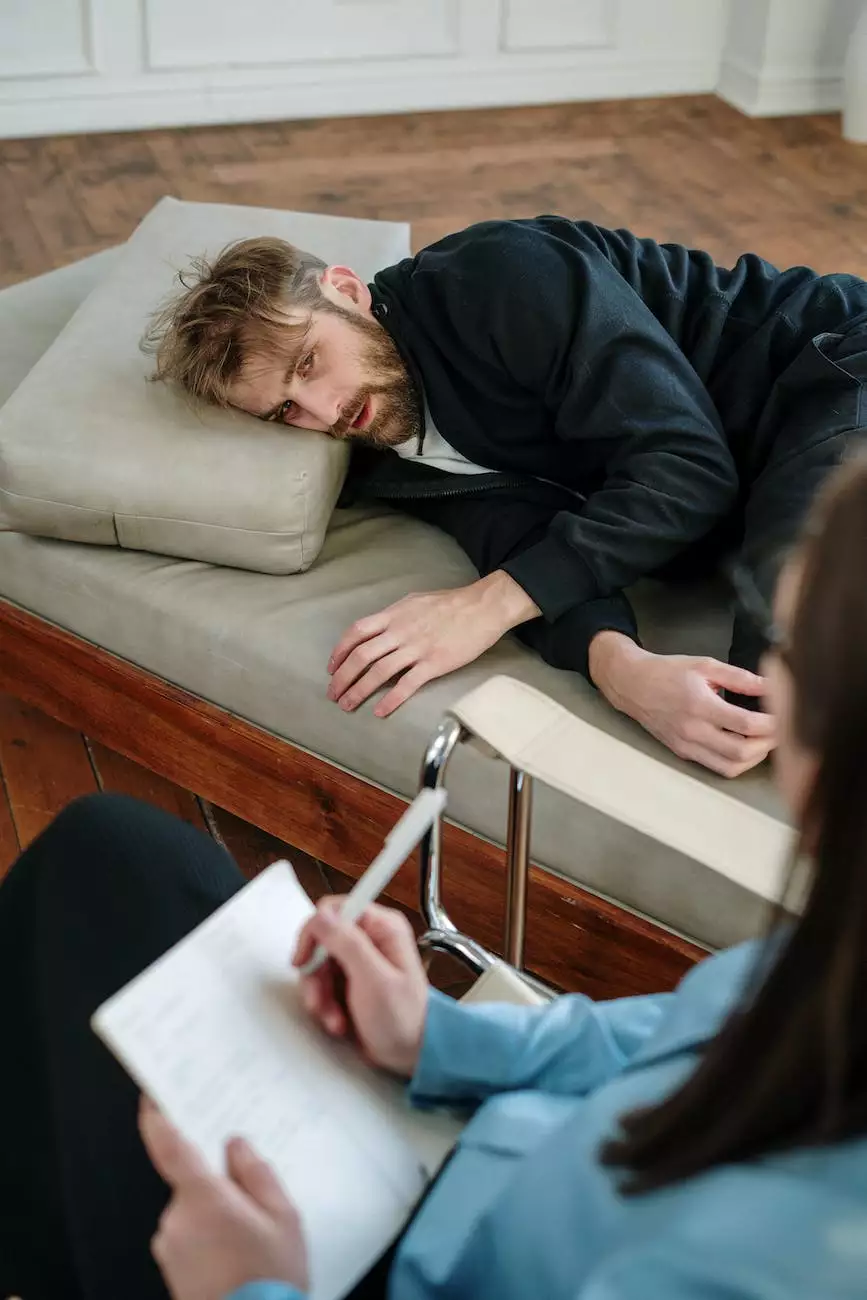You Don't Look Anorexic: A Closer Look into the World of Anorexia
Mental Health
About Susan H Dowell, LCSW, BCD
Welcome to the page "You Don't Look Anorexic" submitted by Hank Blumfarb, LCSW and Robin Halpern, LCSW, DCSW. We are excited to bring you valuable insights into the world of anorexia and mental health support. At Susan H Dowell, LCSW, BCD, we specialize in providing comprehensive assistance for individuals facing anorexia and related mental health challenges.
Understanding Anorexia: Debunking Misconceptions
Anorexia nervosa is a complex mental health disorder characterized by distorted body image and an intense fear of gaining weight. While many people associate anorexia with a frail and severely underweight appearance, it is essential to challenge this common misconception. The reality is that individuals with anorexia may not always exhibit obvious physical signs or fit into the stereotype portrayed by the media.
At Susan H Dowell, LCSW, BCD, we understand the importance of recognizing that anorexia can affect individuals of all shapes and sizes. Our dedicated team works diligently to provide personalized support and a safe space for individuals to openly discuss their struggles, regardless of their outward appearance.
The Multidimensional Impact of Anorexia
Anorexia goes beyond the physical aspect and affects various facets of an individual's life, including their mental, emotional, and social well-being. We believe in addressing the holistic needs of our clients, recognizing that recovery involves healing on multiple levels.
The Mental and Emotional Toll
Anorexia can take a significant toll on one's mental and emotional health. Individuals may experience obsessive thoughts about food, a distorted self-image, and a relentless pursuit of thinness. Feelings of guilt, shame, and worthlessness are common among those struggling with anorexia. Our experienced therapists provide compassionate guidance to help individuals navigate these challenging emotions and develop healthier coping mechanisms.
Impact on Relationships and Social Functioning
Anorexia can strain relationships and disrupt social functioning. The intense preoccupation with food, body image, and weight loss may lead to isolation, withdrawal, and difficulties in connecting with others. Our team acknowledges the importance of repairing and rebuilding relationships as part of the recovery process. We offer valuable guidance and support to individuals and their loved ones, fostering communication, understanding, and empathy.
Recovery is Possible: Our Approach at Susan H Dowell, LCSW, BCD
At Susan H Dowell, LCSW, BCD, we firmly believe that recovery from anorexia and other eating disorders is possible. Our comprehensive approach encompasses evidence-based therapies, a person-centered focus, and a deep commitment to individual empowerment.
Evidence-Based Therapies
We utilize a range of evidence-based therapies tailored to meet the unique needs of each individual. Cognitive-Behavioral Therapy (CBT), Dialectical Behavior Therapy (DBT), and Family-Based Therapy (FBT) are among the therapeutic modalities we employ to address the underlying causes of anorexia and promote sustainable recovery.
Person-Centered Care
Every person's journey to recovery is unique. Our person-centered approach ensures that treatment is customized to align with each individual's goals, preferences, and aspirations. We value the importance of collaboration, empowering our clients to actively participate in their healing process.
Building Resilience and Long-Term Success
Recovery from anorexia requires not only addressing the present challenges but also equipping individuals with skills and tools they can utilize in the long run. Our focus on building resilience and fostering long-term success enables our clients to sustain their progress and navigate future obstacles with confidence.
Contact Susan H Dowell, LCSW, BCD
If you or a loved one is struggling with anorexia or any related mental health concerns, please don't hesitate to reach out to Susan H Dowell, LCSW, BCD. We are dedicated to providing a safe, empathetic, and non-judgmental environment where individuals can find the support they need to embark on their journey to recovery.
Call (123) 456-7890 or email [email protected] to schedule an appointment or learn more about our services. Let us be your trusted companion on the path to healing.









